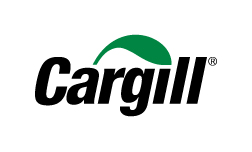Waste Not, Want Not – Toward Zero Hunger: Food Banks – A Green Solution to Hunger
 Food banks are a “green” hunger intervention, providing food assistance to the hungry, building up civil society, supporting sustainable food systems and protecting the environment through community-based, multi-sector collaborations. With its tremendous collective impact on reducing hunger, food waste and greenhouse gas emissions that contribute to a changing climate, food banking can play a vital role in creating a more environmentally sustainable, just, and equitable society.
Food banks are a “green” hunger intervention, providing food assistance to the hungry, building up civil society, supporting sustainable food systems and protecting the environment through community-based, multi-sector collaborations. With its tremendous collective impact on reducing hunger, food waste and greenhouse gas emissions that contribute to a changing climate, food banking can play a vital role in creating a more environmentally sustainable, just, and equitable society.
Food banks operating in 57 countries around the world found that the food bank networks of The Global FoodBanking Network (GFN), the European Food Banks Federation (FEBA) and Feeding America serve 62.5 million people and prevent approximately 2.68 million metric tons of safe, edible surplus food being wasted, according to Waste Not, Want Not – Toward Zero Hunger: Food Banks – A Green Solution to Hunger.
 Waste Not, Want Not shows how food banks across the globe mitigate an estimated 10.54 billion kg of CO2-eq annually – equivalent to nearly 2.2 million passenger vehicles, according to the study, which focuses on the contributions of local food bank organizations in achieving the United Nations’ Sustainable Development Goals.
Waste Not, Want Not shows how food banks across the globe mitigate an estimated 10.54 billion kg of CO2-eq annually – equivalent to nearly 2.2 million passenger vehicles, according to the study, which focuses on the contributions of local food bank organizations in achieving the United Nations’ Sustainable Development Goals.
The report, notes the foundation responsibility of government to address the issues of food insecurity, and also recommends food producers, retailers and governments to adopt simplified label recommendations, as currently 20 percent of safe, edible food is wasted over confusion with “best by,” “best before,” “use by,” and “sell by” dates on packages. These measures should help improve the current paradox, where one-third of all food produced for human consumption (1.3 billion tonnes) is being lost or wasted, whilst one in nine people (821 million) go hungry.
Recommended actions for governments
- Expand the food insecurity social safety net
- Establish public policies and cross sector cooperation to encourage surplus food donation
- Partner with food banks in expanding the informal social safety net
- Include official development assistance funding to support food banking expansion where appropriate
- Measure food insecurity using the Food Insecurity Experience Scale
- Quantify food loss and waste—support food recycling and redistribution
Recommended actions for business
- Measure and manage food loss and waste
- Develop and implement a global donation policy
- Standardize date coding
- Increase support and resources for local food banks
International agencies and multilateral institutions
- Gather informative data
- Utilize food banks for logistics and storage to support in-kind emergency relief
Waste Not, Want Not – Toward Zero Hunger: Food Banks – A Green Solution to Hunger was made possible by the generous support of:






